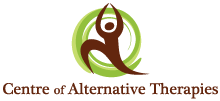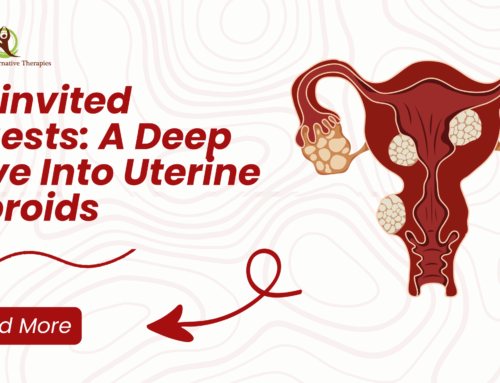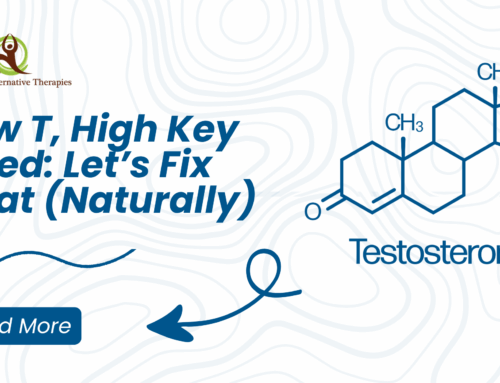Functional Medicine & Complementary Healing: A Holistic Path to Lasting Wellness
In the evolving world of healthcare, patients are increasingly seeking out holistic, patient-centered approaches to healing especially for complex or chronic conditions where conventional treatments fall short. At The Centre of Alternative Therapies (COAT), we integrate the best of functional medicine, homeopathy, botanical medicine, and traditional nutrition to support the body’s innate capacity to heal. Over the years Dr. Sood has optimized an approach to complementary health, grounded in science but immersed in the traditional therapies of his training. The ideology of functional medicine is the latest integration into COAT’s therapeutic approach.
One modality does not fit all—and functional medicine, when combined with complementary health care, provides a dynamic, whole-person approach to both treatment and prevention.
🌱 What Is Functional Medicine?
Functional medicine is a systems-based, biology-driven approach that seeks to identify and address the root cause of disease, not just manage symptoms. It embraces the understanding that every individual is biochemically unique, and that lasting healing involves restoring balance across the body’s interconnected systems—gut, hormones, immune, detoxification, and more.
Functional medicine emerged in the 1990s, born from dissatisfaction with the reductionist, symptom-suppressing model of conventional medicine. It draws upon the wisdom of traditional healing while incorporating modern science and diagnostics.
Functional medicine provides a framework to systematically identify and address the underlying processes and dysfunctions that are causing imbalance and disease in each person. By understanding your genetic, environmental, and lifestyle influences, functional medicine clinicians create personalized interventions that restore balance, health, and well-being.8
Functional medicine heals the whole person, addressing the unique physical, mental, and emotional needs of each patient. Clinicians bring together the entire complement of modern scientific tools, including a deep understanding of biology, physiology, genetics, social and environmental determinants of health, and the vital connection between mental and physical well-being. It is this combination of focusing on individual patients and applying a multi-faceted treatment path that delivers transformational results. 8
In Functional Medicine the following factors such as antecedents (predisposing factors, genetics and environmental), the triggering events(activators), mediators(contributors), sleep and relaxation, exercise and movement, nutrition, stress, relationships, the mental, emotional and spiritual are all taken into consideration to find the root cause of your current dysfunction.
Functional Medicine helps you to take Control of Your Health!
How can functional medicine help?
Using a comprehensive approach to prevention, health, and well-being, functional medicine expands the communication and evaluation process for you and practitioners and prioritizes lifestyle-based therapies that enhance the existing care plan. Functional medicine blends conventional care with a personalized framework that treats the root causes of disease and restores healthy function for each individual. 8
Focus Areas of Functional Medicine Care
The patient becomes a partner
Your voice and choice in how you receive care matters. When you see a functional medicine clinician, you become an active partner in improving your health and changing the outcome of disease, working together with your functional medicine provider to determine the best pathway for your healing. 8
An emphasis on evaluation
Functional medicine practitioners focus on the interconnectedness of bodily systems and their impact on health, working together with patients to personalize care. Evaluation involves extensive patient histories, assessments of lifestyle factors, and social determinants of health and helps practitioners identify patterns that may contribute to imbalance and disease. 8
Expanded therapeutic options
You will work with your functional medicine practitioner to personalize a therapeutic plan that suits your health needs. Therapeutic interventions may include a combination of therapeutic diets, exercise, stress management, pharmaceuticals and botanicals, and other lifestyle modifications. 8
Key Concepts in Functional Medicine:
- Root Cause Analysis: Investigating the “why” behind symptoms (e.g., gut dysbiosis → skin issues or depression).
- Systems Biology: Understanding how all systems interact—hormones, immunity, gut, and brain health are all linked.
- Patient-Centered Care: Listening to the patient’s full story, not just diagnosing a condition.
- Personalized Interventions: Including targeted supplements, herbal medicine, stress management, detoxification, and individualized nutrition plans.
🌿 How Functional Medicine Complements Other Natural Therapies
At our centre, functional medicine doesn’t replace, but rather integrates beautifully with other time-tested healing systems:
✅ Homeopathy
Homeopathy works on the energetic and emotional level, stimulating the body’s vital force to restore balance. While functional medicine assesses labs and physiology, homeopathy deepens the emotional and mental healing, often uncovering layers of chronic imbalance.
📊 A meta-analysis of 32 RCTs found individualized homeopathy significantly outperformed placebo in managing chronic conditions such as arthritis, IBS, and allergies (Mathie et al., 2014).
✅ Botanical Medicine
Herbs are the original functional tools. Used traditionally for centuries and now validated through modern science, botanicals provide synergistic and multi-targeted support for detoxification, inflammation, immune function, and more.
📊 Systematic reviews show evidence for the use of botanicals such as turmeric (anti-inflammatory), ashwagandha (adrenal and stress support), and milk thistle (liver protection) in managing both acute and chronic conditions (Ulbricht et al., 2008; Lopresti et al., 2019).
✅ Traditional Nutrition & Whole Food Healing
Food is information for the body. Functional medicine uses food not only for nourishment but also to modulate inflammation, hormone balance, detox pathways, and microbiome health.
📊 A 2021 review in Nutrients found that personalized anti-inflammatory and gut-repairing diets (e.g., low FODMAP, elimination diets) improved symptoms in 70–80% of patients with IBS, eczema, and autoimmune issues (Biesiekierski, 2014).
🛡️ Prevention Through Functional and Complementary Medicine
Prevention is at the core of true health care—not disease management. Functional and complementary modalities excel in:
- Identifying early warning signs (e.g., adrenal fatigue, blood sugar instability)
- Detecting nutrient deficiencies or toxin overload before illness sets in
- Correcting imbalances before they become chronic (e.g., SIBO → IBS → systemic inflammation)
- Supporting long-term resilience through lifestyle, herbal, and homeopathic strategies
⚖️ Acute vs Chronic Care: What the Research Shows
🌟 Acute Conditions:
- Homeopathy has shown efficacy in reducing duration and intensity of acute respiratory infections (Jacobs et al., 2016).
- Botanicals like echinacea and elderberry have been studied for immune-boosting and antiviral properties.
🌿 Chronic Disease:
- Functional medicine’s comprehensive lifestyle interventions improve patient outcomes in:
- Type 2 Diabetes (IFM 2019 study: significant A1C reductions with lifestyle + supplement plan)
- Autoimmune Conditions (e.g., Hashimoto’s, RA) via gut healing, food sensitivities, and stress management
- Mental Health: Targeted nutrient therapy and gut-brain support lead to improved mood and cognitive function
📊 In a study of 1,595 patients from a functional medicine clinic, participants reported improved quality of life scores across all domains compared to traditional care (Beidelschies et al., 2019, JAMA Network Open).
👨👩👧👦 Who Benefits From This Approach?
Functional and complementary care is ideal for:
- Individuals with chronic, unresolved conditions
- Those who want to avoid long-term medications
- Families seeking natural and gentle options for their children
- Adults ready to optimize their energy, immunity, and resilience
- Seniors interested in preventative aging and cognitive support
🧘♀️ The Whole-Person Advantage
What sets this model apart is the deep commitment to treating the whole person—not just a disease label. Functional medicine combined with homeopathy, herbal medicine, and clean nutrition offers a comprehensive, sustainable, and empowering path to lifelong health.
💬 Ready to Explore Functional Healing?
At The Centre of Alternative Therapies, we are proud to offer an integrated model of care that combines the best of tradition with the innovations of modern science. Whether you are dealing with fatigue, inflammation, hormonal imbalance, digestive issues, or just want to feel like yourself again—we’re here to guide you.
🌿 Prevention is possible. Healing is natural. And your body already knows the way.
📚 References
- Mathie RT et al. (2014). Randomised placebo-controlled trials of individualized homeopathic treatment: a systematic review. Systematic Reviews.
- Ulbricht C et al. (2008). An evidence-based systematic review of turmeric by the Natural Standard Research Collaboration. Journal of Dietary Supplements.
- Lopresti AL et al. (2019). A review of clinical trials examining the use of ashwagandha for stress and anxiety. Journal of Clinical Psychiatry.
- Biesiekierski JR. (2014). What is a low FODMAP diet and how does it affect IBS symptoms? Journal of Gastroenterology and Hepatology.
- Jacobs J et al. (2016). Homeopathic treatment of acute upper respiratory infections in children. Global Pediatric Health.
- Beidelschies M, et al. (2019). Association of the Functional Medicine Model of Care With Patient-Reported Health-Related Quality-of-Life Outcomes. JAMA Network Open.
- https://www.ifm.org/functional-medicine




